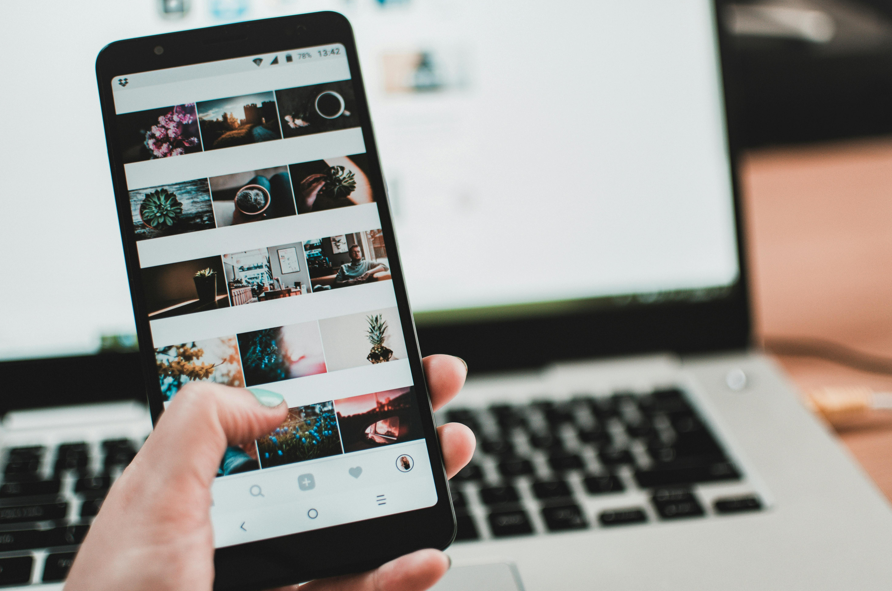
Photo by Serpstat on Pexels.com
Embrace the Ever-Changing Digital Landscape
The digital marketing world moves fast, and staying ahead means keeping up with new trends, tools, and consumer behaviors. You don’t want to rely on outdated strategies while your competitors are experimenting with fresh, innovative approaches. The key to success is adaptability—embracing change rather than resisting it. When you continuously learn and adjust your marketing efforts, you position yourself as an industry leader, not a follower.
One way to keep up is by following industry news, attending webinars, and networking with other marketing professionals. Digital platforms frequently update their algorithms, and what worked last month might not be as effective today. If you stay informed and adjust your strategies accordingly, you’ll always be one step ahead. Remember, digital marketing is like a fast-moving train—you want to be in the front seat, not chasing from behind.
The Power of Omnichannel Marketing
Consumers interact with brands across multiple platforms, from social media and email to search engines and online ads. If you want to maximize your reach and engagement, an omnichannel approach is essential. This means delivering a seamless and consistent brand experience across all touchpoints.
For example, a potential customer might first discover your brand through an Instagram ad, visit your website via a Google search, and later receive a follow-up email with a special offer. When your messaging remains consistent and personalized throughout this journey, you create a stronger connection with your audience. Implementing an effective omnichannel strategy can significantly improve customer retention and brand loyalty.
Leverage AI and Automation for Smarter Marketing

Photo by ThisIsEngineering on Pexels.com
Artificial intelligence (AI) and automation have become game-changers in digital marketing, helping brands save time and boost efficiency. If you’re not using AI-driven tools yet, you’re missing out on a huge opportunity to streamline your marketing efforts. AI can analyze customer behavior, predict trends, and even generate personalized content, making your campaigns more relevant and engaging.
Automation tools can handle repetitive tasks like email marketing, social media scheduling, and customer segmentation. This allows you to focus on strategic planning and creative execution instead of spending hours on manual work. The best part? AI is continuously improving, meaning the longer you use it, the smarter and more effective your marketing strategies become. Think of AI as your digital assistant, always working behind the scenes to optimize your efforts.
Chatbots and AI-Powered Customer Engagement
Chatbots have transformed customer service, allowing brands to provide instant support and engagement. AI-driven chatbots can answer frequently asked questions, recommend products, and even guide users through the buying process. By integrating chatbots into your website or social media platforms, you can improve customer experience while freeing up time for your team to focus on more complex tasks.
Master SEO to Boost Visibility and Rankings

Photo by Pixabay on Pexels.com
Search engine optimization (SEO) remains one of the most powerful ways to drive organic traffic to your website. If you’re not prioritizing SEO, you’re leaving valuable opportunities on the table. The key to SEO success is optimizing your content for search engines while keeping it valuable and user-friendly for real people.
Keyword research, on-page optimization, and high-quality backlinks are essential to improving your rankings. But SEO isn’t just about stuffing keywords into your content—it’s about understanding search intent and creating content that truly answers users’ questions. Google’s algorithms are getting smarter, prioritizing websites that offer relevant, high-quality, and engaging content.
Don’t forget about technical SEO! Page speed, mobile-friendliness, and structured data all play a crucial role in how search engines rank your website. Regularly auditing your website’s SEO performance ensures that you stay ahead of algorithm changes and maintain strong visibility in search results. When done right, SEO helps you attract more traffic, build credibility, and grow your brand without relying solely on paid advertising.
Local SEO and Voice Search Optimization
With more consumers using voice assistants like Alexa and Google Assistant, optimizing for voice search is crucial. Voice searches are often longer and more conversational, so focus on natural language keywords. If you run a local business, optimizing for local SEO—such as claiming your Google My Business listing and gathering positive customer reviews—can help you attract nearby customers.
The Role of Video in SEO
Video content is playing a significant role in SEO, as search engines prioritize engaging multimedia content. Embedding videos on your website can increase dwell time, reduce bounce rates, and boost your rankings. Platforms like YouTube are also essential for SEO since YouTube videos often rank highly in search results. To optimize video content, use relevant keywords in titles, descriptions, and tags, and provide transcripts to improve accessibility and indexability.
Content is Still King—But It’s Evolving

Photo by Lisa From Pexels on Pexels.com
You’ve probably heard the phrase “content is king” a million times, and guess what? It’s still true! But content marketing has evolved beyond simple blog posts and social media updates. Today, consumers crave interactive, visual, and engaging content that provides real value. If you want to capture attention and build trust, you need to create content that speaks directly to your audience’s needs.
Short-form videos, live streams, and interactive polls are dominating social media platforms, giving brands new ways to connect with their followers. Storytelling also plays a huge role in modern content marketing. Instead of just promoting your products or services, focus on telling stories that evoke emotions and build relationships with your audience. The more authentic and relatable your content is, the more likely people are to engage and share it.
User-Generated Content and Influencer Collaborations
Consumers trust peer recommendations more than traditional advertising. Encourage user-generated content (UGC) by hosting contests, featuring customer testimonials, and sharing user-submitted photos. Partnering with influencers in your industry can also help expand your reach and add credibility to your brand.
Interactive and Immersive Content
Augmented reality (AR), virtual reality (VR), and interactive experiences are reshaping content marketing. Brands that embrace these technologies can provide engaging, memorable experiences for their audiences. Interactive quizzes, AR shopping experiences, and 360-degree videos are just a few ways to enhance engagement.
Stay Data-Driven and Customer-Focused

Photo by fauxels on Pexles.com
Great digital marketing isn’t about guesswork—it’s about data. Tracking analytics helps you understand what’s working and what needs improvement. Whether it’s website traffic, conversion rates, or social media engagement, data gives you insights that can guide your decisions. If you’re not already using tools like Google Analytics, social media insights, or CRM software, now’s the time to start.
Customer behavior constantly changes, and data helps you keep up with their needs and preferences. Personalization is key in modern marketing, and by analyzing your audience’s behavior, you can create tailored experiences that resonate with them. When you give your customers what they actually want, you build trust and long-term loyalty. It’s a win-win for both your brand and your audience!
A/B Testing and Conversion Rate Optimization
A/B testing allows you to compare different versions of your marketing campaigns to see which performs best. Whether it’s email subject lines, ad creatives, or website layouts, continuous testing helps you optimize your conversion rates and maximize results.
Keep Experimenting and Innovating

Photo by Leeloo The First on Pexels.com
The best marketers never settle for “good enough.” If you want to stand out, you need to be willing to test new strategies and push creative boundaries. A/B testing, trying new content formats, and exploring emerging platforms can help you find what works best for your audience.
Don’t be afraid to fail—some of the most successful marketing campaigns come from trial and error. When you adopt a mindset of continuous learning and experimentation, you open the door to breakthrough ideas that set you apart from the competition. Stay curious, keep exploring, and never stop innovating!
Conclusion
Staying ahead in digital marketing isn’t about knowing everything—it’s about staying flexible, embracing trends, and using data-driven insights to guide your strategy. By leveraging AI, mastering SEO, creating engaging content, and continuously experimenting, you’ll set yourself up for long-term success. So, keep learning, keep adapting, and most importantly—have fun with it! Digital marketing is an exciting journey, and the more you enjoy it, the more your audience will too.
